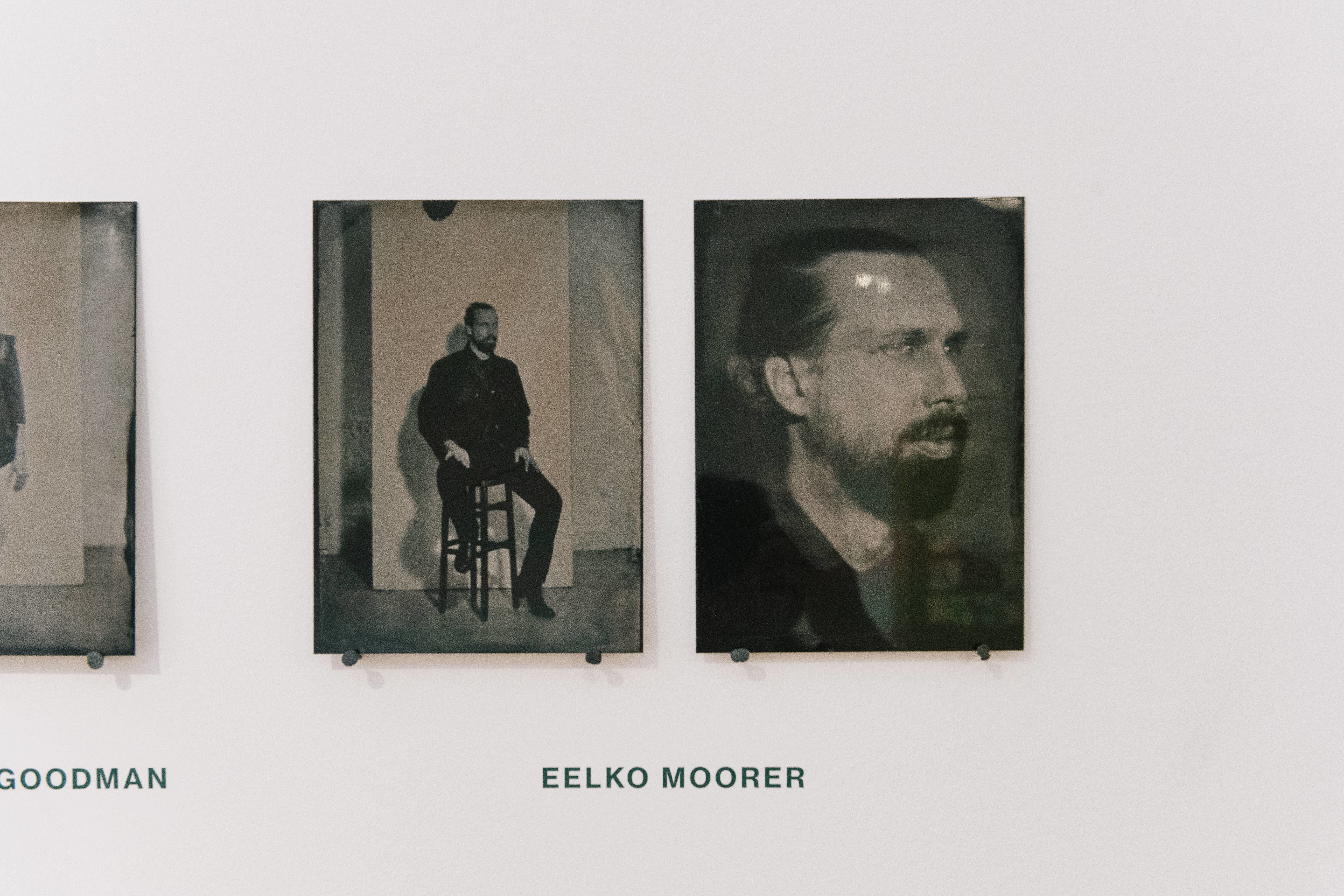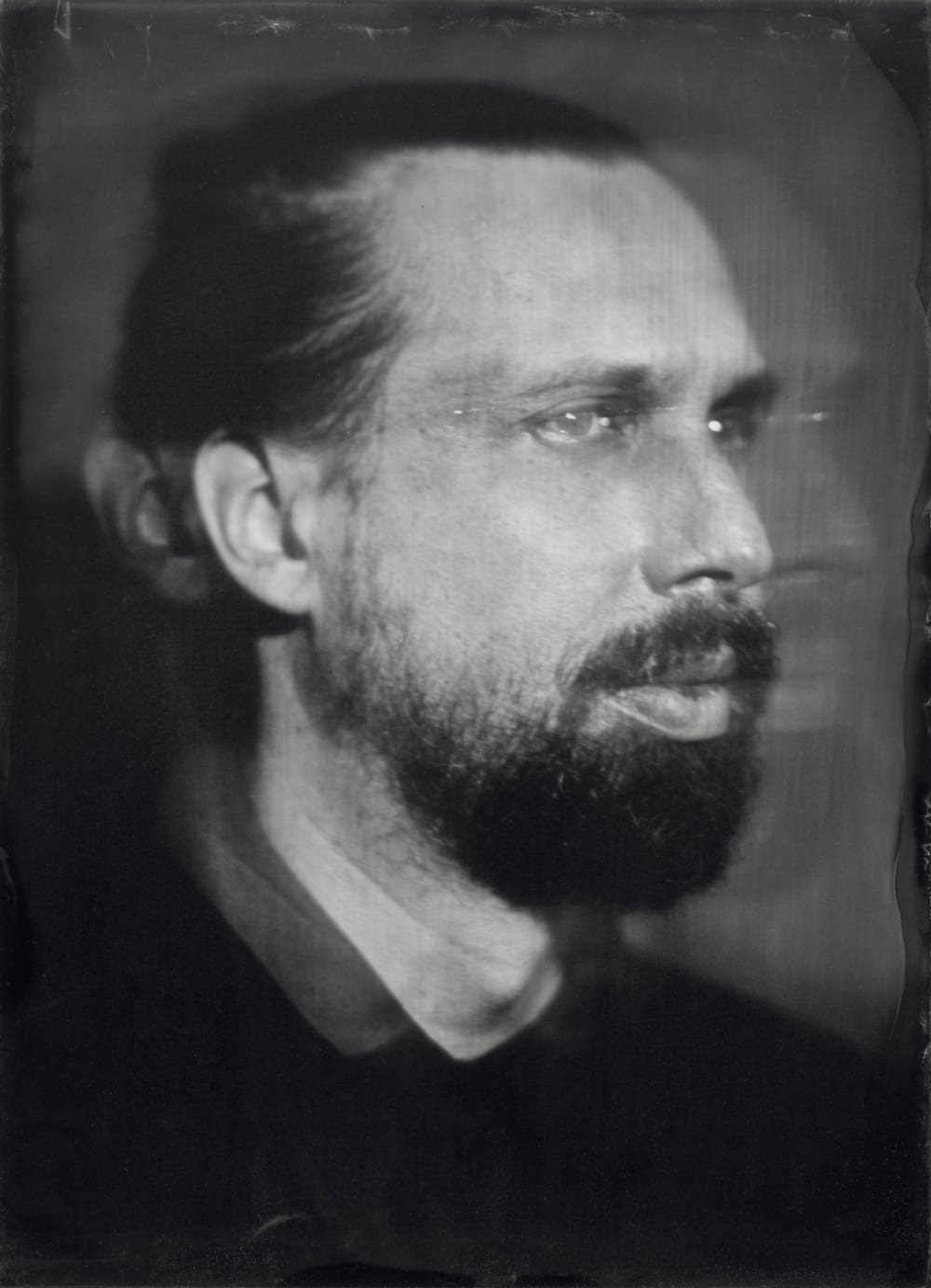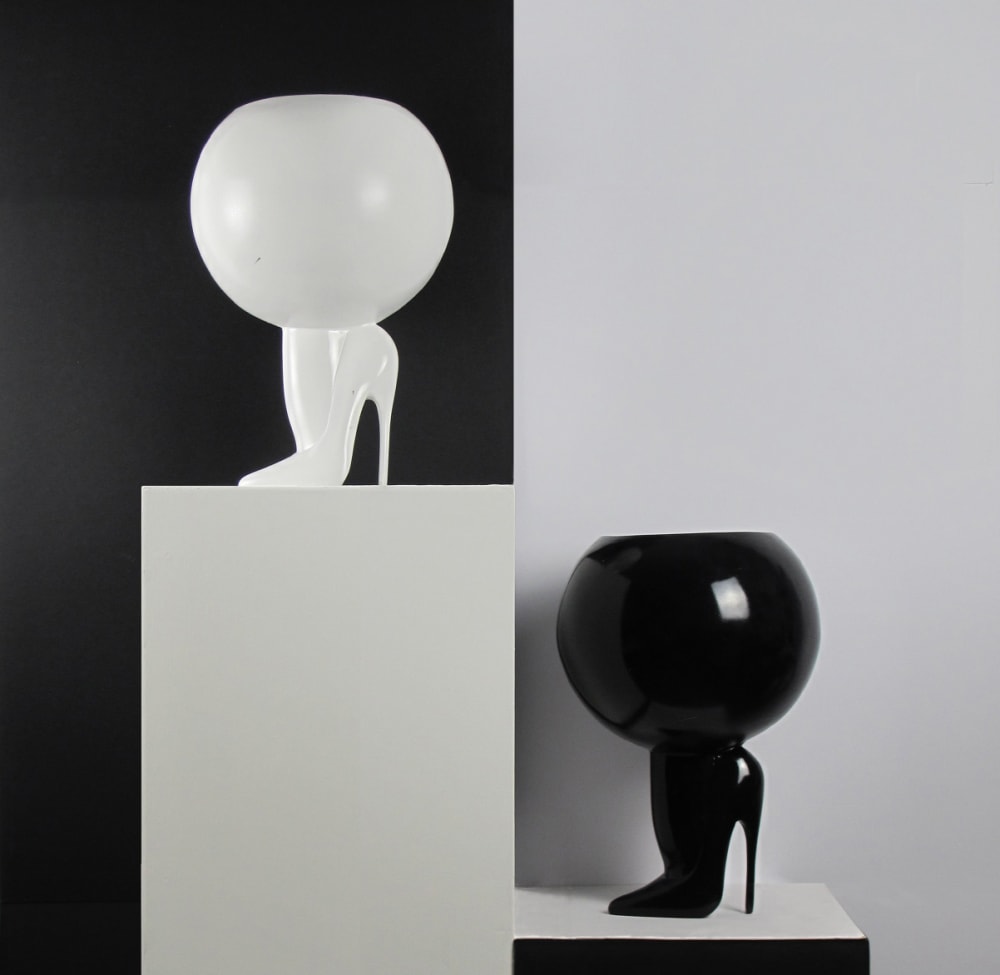
2022 , London College of Fashion, UAL | Photograph: ANA BLUMENKRON


The Fashion Space Gallery is abuzz with London College of Fashion’s newest exhibition – LCF x LCW. Taking place throughout May, LCF x LCW is a celebration of craft excellence across footwear, accessories, jewellery, tailoring and artefact.
Next in our series of interviews, Course Leader Eelko Moorer discusses ‘sculpted poetry’, the intimacy of craft, and how MA Footwear is challenging conventional notions of shoe design.

I’m doing a pre-recorded reading of a part of a work of mine called Recycled Words. They are short aphorisms and poems where I ‘excavate’ and ‘find’ the poem through erasing pages out of magazines (fashion magazine, sex magazines, music magazines, etc) with Tipp-Ex. It is sculptural in its process and painterly in its texture.
I am essentially sculpting poems. Through this process of taking away, I reveal different layers of reality and structures within existing text, and I hope to find imagination in the banal. In this way, the words are recycled.

Thematically, they are about intimacy and what that could mean. I do this by exploring similarities in words that have opposite and juxtaposed meaning. This places the ‘perverse imagination’ and ‘spiritual imagination’ together, or opposite each other, creating a tension that interweaves narratives of spirituality, sex and death.
What I mean here is sex as a life force versus sex as an impulse, Eros, and death as ‘to die before dying’ and Thanatos. Above all, they are a quest for Union.
Through this technique of recycling text and allowing the content to overlap, the poems and aphorisms hope to invoke and evoke the same questions within the reader as they did on my own journey of making them.
It is not so much a theme but a raison d'etre. It is the thread in all I do and underpins the themes with which I work.
These themes are narratives and concepts rarely addressed in contemporary design, i.e., forms of Eros and Thanatos, and sex and death as I described above too. Although those themes are dear and important to me, they ultimately are just personal interest in combination with the fact that I find them interesting in the context of design.
I feed others by being, and doing what I do. This is the humanity and purpose in my projects. It finds its expression in a variety of work, and continuous experimentation with different materials, forms, contexts, stories and ideas. This takes the form of bespoke footwear and conceptual catwalk pieces, interior design objects for galleries, installation, academic articles, performance, short film and now also a booklet like Recycled Words. There is always an element of craft in there.
We do this by challenging students to consider and define for themselves what footwear means – and to challenge and develop innovative solutions through questioning what footwear can be.
We focus on developing a critical studio practice where students are active participants in determining areas of investigation and deeper research enquiry from different social and cultural perspectives.
In doing so, we essentially investigate how current and contemporary social, political, cultural, and technological issues inform new approaches to the design of footwear and lower extremities.
The main way we work is through workshops and individual tutorials. We put a great emphasis on creativity first and foremost, because this is where we can really ‘see’ the student. Students show themselves in their expressions.
We hope that the freedom we give here activates the human need within students to see the world with one’s own eyes (if they haven’t got that already!).
This need has nothing to do with ideas about only expressing their own uniqueness or self-importance. This is why we then explore their ideas and expressions within sociocultural contexts, through which, in which, or against which, they define themselves fully.
This is a process of merging the individual and their self-chosen context, the social. In this process we hope to stimulate, guide and/or use their autonomy as an integrating force to their development as self-directed personalities. This is what gives them what you call their distinctive voice and individual expression.

Within the world of objects, that which is hand-made is poetic and expressive, as opposed to literal and formal.
I am one of those people who believe that what we should hold dear in contemporary society are poetic spaces for imagination and expression. Craft inhabits this by being an intimate experience and that’s why it is important – especially in today’s world which sometimes seems devoid of empathy.